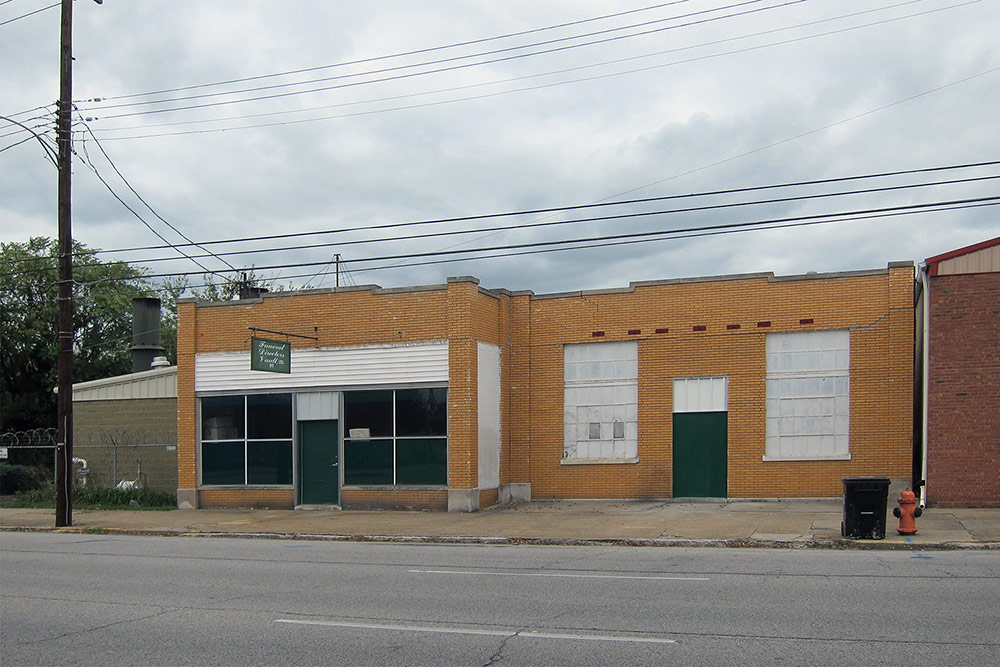Tucked away in the center of Louisville, a small yellow-brick building at 817 East Jefferson Street has the distinction of being one of a few places where bodies cease to exist. Funeral Director’s Vault, the successor of a string of family-owned vault and monument companies dating back over a century, operates an urban crematorium and vault manufacturing facility at the site, although many in Louisville don’t know the wholesale operator even exists behind its quiet storefront.
Originally called the George F. Panke Vault Company, the business has been on Jefferson Street for generations. Panke Company was originally housed in a building a couple blocks west on Jefferson on land that was cleared once in the 1930s for the Clarksdale Homes and cleared again for Liberty Green. In 1937, the company built the one-story building that still houses Funeral Director’s Vault today.
The on-site crematorium handles 75 to 100 procedures a month. “In the eyes of the state, a body ceases to exist here,” Funeral Director’s Vault manager Marshall L. Lindsey told Broken Sidewalk. “After cremation, a body is no longer considered a body—a person. It’s only mineral particles.”

While at first it might seem odd for a crematorium to be located in the middle of a busy city, Marshall explained that modern cremation practices are a far cry from generations past. “Our crematorium puts out negligible if any pollution—most of it is heat,” he said. “They’re pretty high tech ovens with afterburners—it’s not like a bonfire.” He said the company undergoes stringent local- and state-level oversight and is monitored annually by Metro Louisville.
But the company’s namesake business is in burial vaults—concrete boxes that protect the casket once it’s buried. “Most cemeteries here in Louisville require you have them,” Lindsey said. “It’s not a state law, it’s a cemetery rule or policy that you have them.” Like the sarcophagi of ancient Eqypt or Rome, the vaults help protect the casket from collapsing under the weight of the earth. “It’s done because it maintains grave integrity,” Lindsey said. “After so long in the ground, a casket would decompose and crush. You’d have a big divot on the surface where the casket collapses. It’s harder to maintain for the cemeteries, and they started requiring them.”
Funeral Director’s Vault manufacturers 125 to 200 vaults every month, ranging from the basic concrete box to luxury models lined with copper, bronze, stainless steel, or coated in plastic. “At the higher end, they’re not cheap,” Lindsey said. “The least expensive model is just a concrete box. All it does is primarily keep the dirt off the casket.”
It’s unlikely you’ll ever find yourself knocking on the front door of Funeral Director’s Vaults—they don’t sell to the public. The company, formed in 1987 after a group of about a dozen local and regional funeral homes purchased the business, works behind the scenes to make what can be a very stressful time for families go smoothly. The ten-person company often works seven days a week and sometimes on holidays. “Death doesn’t pick a time,” Lindsey said.


